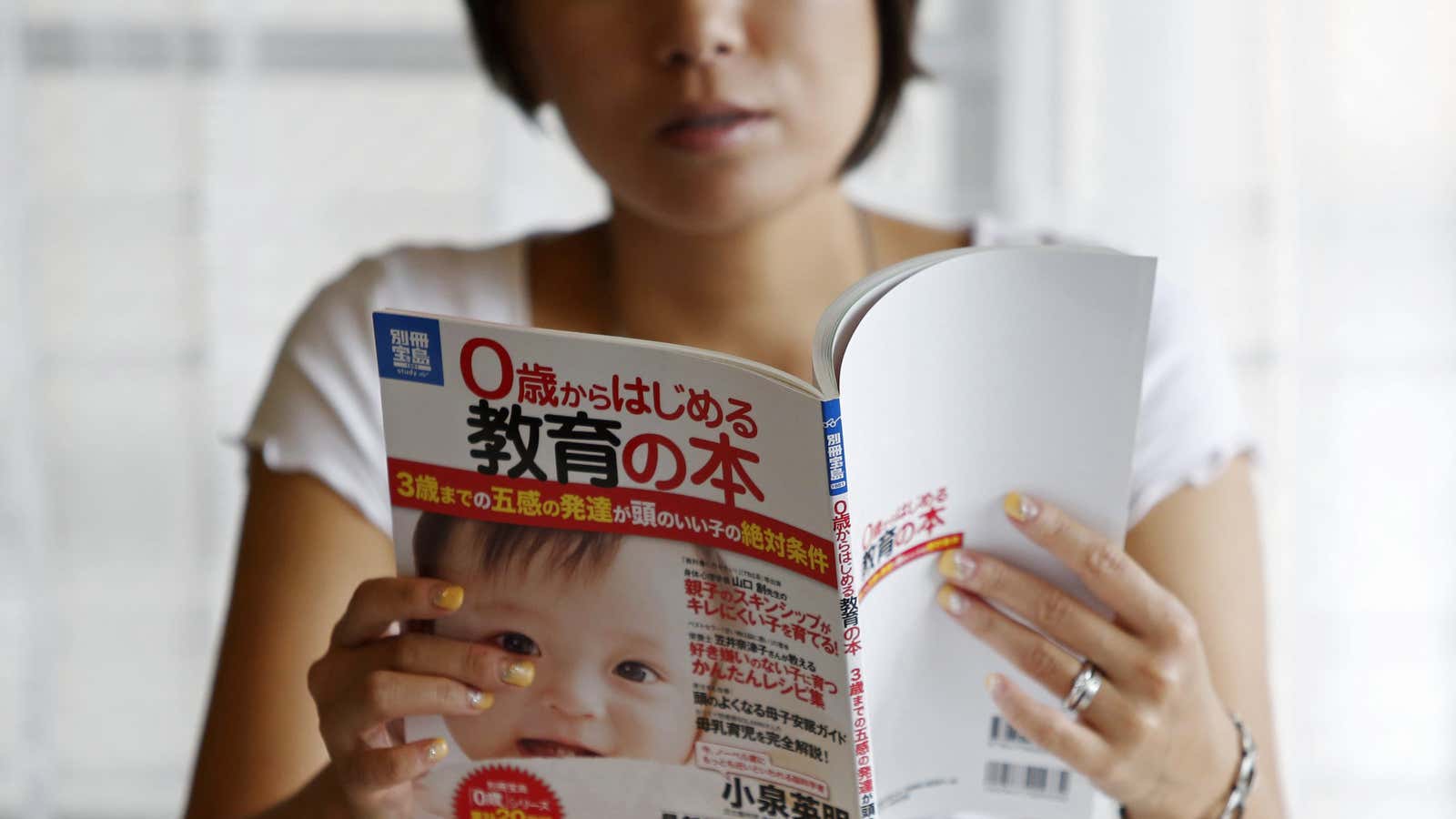An obsession with staying slim during pregnancy could have far-reaching effects on the development of Japanese people’s kidneys.
Researchers from Australia’s Monash University and the Jikei University School of Medicine in Tokyo looked into the preponderance of high blood pressure (hypertension) and kidney disease in Japan, and found that Japanese people on average have a lower number of nephrons, the tiny filtering units in kidneys, compared to other races. For those suffering high blood pressure, it’s even lower.
“This paper, the first such study in an Asian population, shows that Japanese with hypertension have significantly fewer nephrons than normotensive [normal blood pressure] Japanese do—it’s a clear-cut finding,” said John Bertram, a Monash scientist who worked on the study which was published in the Journal of Clinical Investigation Insight.
Kidneys help to regulate blood pressure in the body. A low nephron count means that the kidneys are less able to cope if the person develops obesity, diabetes, or other diseases that affect the kidneys later in life.
People in Japan have around 640,000 nephrons, but the figure is as low as 392,000 if they are hypertensive and 268,000 if they have chronic kidney disease, according to the study. The average number of nephrons in Europeans is around 900,000.
Japanese people have the second-highest rate of chronic kidney disease in the world, with one-eighth of the population suffering from it, according to the researchers. High blood pressure is one of the biggest causes of kidney failure.
Go Kanzaki, a doctor working on the research, posited a link between low-weight babies and kidney problems in Japan. “There is a trend towards Japanese women staying thin and small during pregnancy to try to look beautiful but their babies are more likely to be born smaller and with smaller kidneys and therefore less nephrons—the number of nephrons is set at birth,” he said.
The limited weight gain recommended by Japanese doctors to pregnant women is often a shock to women outside of Japan. The American Pregnancy Association, for example, recommends that women of average weight put on between 25 to 30 lbs (11 to 16 kg) during pregnancy. In contrast, a survey conducted (paywall) among members of a group of non-Japanese mothers in 2015 showed that most women were advised by their doctors in Japan to put on between 7 to 8 kg in weight during pregnancy.
According to a 2016 study published in Journal of Clinical Medicine Research, a “strong desire to be thin” among pregnant Japanese women has contributed to a steady decrease in recent decades in the average birth weight in Japan to 3kg, while the proportion of low-birth-weight babies has also been increasing. The author of that study, a doctor in Japan, concluded: “We should be more tolerant for the weight gain during pregnancy in Japanese woman than ever.”
